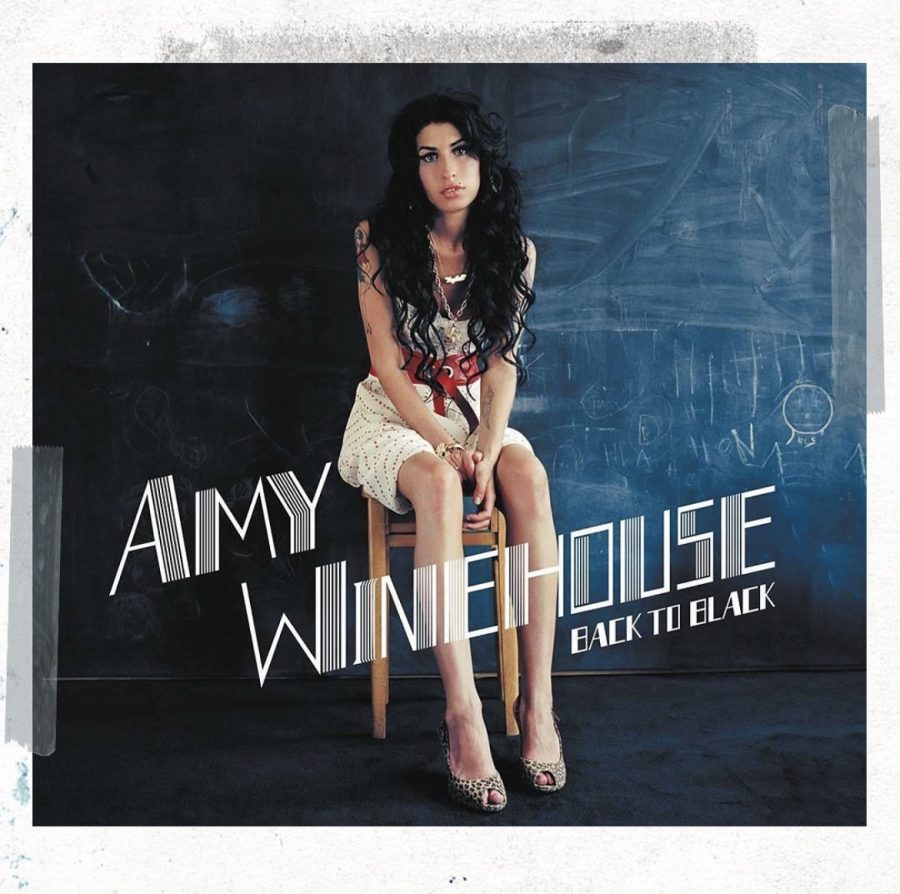Fifteen years ago, pop divas came in only one flavor: bubblegum. They were bright, usually in some shade of pink, sweet but never too sticky. Amy Winehouse’s “Back to Black” came around right when pop music was in dire need of a palate cleanse, and her bitterness was more than welcomed.
I can still remember how her voice literally knocked eight-year-old me back into my parents’ office chair when she said, “no, no, no” to “Rehab”; but the album’s opening track is so much more than its iconic first lines.
Despite being the musical equivalent of a middle finger, “Rehab” is the perfect tone setter for “Back to Black.” It’s an all-out showcase for Winehouse’s cutting wit (“Didn’t get a lot in class / but I know it don’t come in a shot glass”) and her crushing vulnerability (“I’m gonna, I’m gonna lose my baby / so I always keep a bottle handy”).
The “baby” in question was her future ex-husband, Blake Fielder-Civil. The two had a rollercoaster relationship and “Back To Black” was written during a particularly painful off-period when Fielder-Civil left Winehouse for his ex. To cope, she teamed up with legendary producers Salaam Remi (The Fugees, Nas) and Mark Ronson (“Uptown Funk”) and forged an equally legendary sophomore album that was more Motown revival than MTV.
The saga continues with “You Know That I’m No Good,” a swaggering yet resigned ode to self destruction and enabling partners (“You shrug and it’s the worst / who truly stuck the knife in first?”), and “Me & Mr. Jones” is a cheeky shoutout to Nas (a.k.a. Nasir Jones) that was later immortalized by Vine, “What kind of f*ckery is this?”
The underrated “Just Friends” finds Amy unable to quit a flame she knows has burnt out. It’s a lush jazz-reggae hybrid that masks a no-nonsense plea for company, (“I wanna touch you / but that just hurts”).
The album’s title track sounds like somebody told The Ronettes they wouldn’t be their baby (catch the famous drum kick). There’s a massive difference between saying “You broke my heart” and “We only said goodbye with words / I died a hundred times”— the former is a mere swipe, while the latter is Amy Winehouse going for the jugular. Maybe that line was just her finishing the job, because the song opens with this crusher, “He left no time to regret / kept his d*ck wet / with his same old same bet” — OUCH.
What can I write about “Love Is A Losing Game” that hasn’t been written? It’s one of the best songs about thwarted love from the last 40 years; those unaware of Winehouse’s lyrical genius would think it was a cover. If you won’t take my word for it, take Cambridge University’s; their students correlated the song’s lyrics with a Sir Walter Raleigh poem for an English exam.
“Tears Dry On Their Own” is the grand kiss-off, with an emphasis on “grand.” Any song that samples “Ain’t No Mountain High Enough” has to come in swinging. However, Amy can’t resist taking a swing at herself, lamenting the choices that brought her here: “I’ll be some next man’s other woman soon.”
On an album full of heartbreakers, “Wake Up Alone” is perhaps its most painful as it is Amy at her neediest and most desperate. The lines, “I stay up / clean the house / at least I’m not drinking / run around just so I don’t have to think about thinking” never fail to devastate me.
“Some Unholy War” is Amy’s white flag disguised as a loyal battle cry (“And I will stand beside you / But who you dyin’ for?”), but “He Can Only Hold Her” (a brilliant reworking of The Icemen’s “(My Girl) She’s a Fox”) hints that even though she’s found someone else, she’s merely called a ceasefire “Searching kisses / the man she misses / the man that he longs to be.”
Finally, bonus track (and underrated 4/20 anthem) “Addicted” is Amy’s snarky callout of an old roommate’s boyfriend for smoking her stash (“I’m my own man / so when will you learn / that you got a man but I gots to burn?”).
2021 marks the 15th anniversary of “Back to Black,” but unfortunately it’s also the 10th anniversary of Amy Winehouse‘s passing. In 2011, she succumbed to alcohol poisoning at only 27 years old. Some may be tempted to write Amy Winehouse off as “another member of the 27 Club,” but that just reduces her to the tired old “trainwreck” label. Most of all, it dismisses her talent and artists she’s influenced like Adele, Emeli Sandé, Lady Gaga and Future. In our haste, we failed to recognize the path she was paving and the legends she was introducing to a new generation: Sarah Vaughan, Dinah Washington and more. We owe her a debt of gratitude, and the bill has come due.
Amy Winehouse was brave enough to share her broken dreams with us, but we kicked her while she was down to justify our own. These days, the openness and authenticity embodied by Winehouse’s work is widely encouraged; it’s what we now expect from our idols and their content.
Still, the Chanteuse of Camden’s voice remains a testament to the strength of bearing one’s weaknesses, “Because what’s inside her never dies.”
Morgan Ray is a junior studying journalism and media studies.







